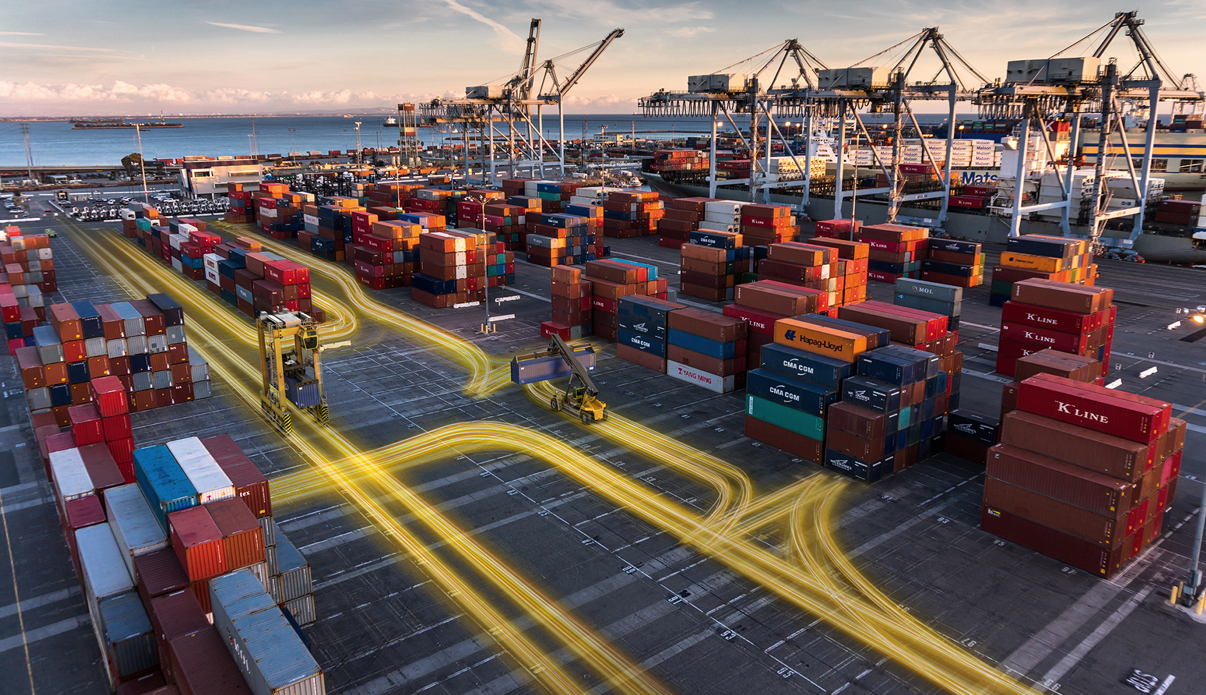Whether clothes, spare parts for cars, or electronic devices, ports have always been important hubs in international supply chains for all sorts of goods worldwide. Their smooth transport is imperative. That is why port logistics are operating non-stop: 7 days a week, 24 hours a day. The port of Rotterdam, the biggest port in Europe, for example, counts with a yearly turnover of over 14 million containers – indicating an upward trend. This development has a significant influence on the ports’ role in material handling processes. Whereas the geographical location was the utmost factor during the past years, speed, efficiency, reliability, and the connectivity of material flows are becoming increasingly important and pose a major challenge to the ports of the future – a challenge Continental is happy to take on by developing tailor-made solutions for both onshore and offshore.

